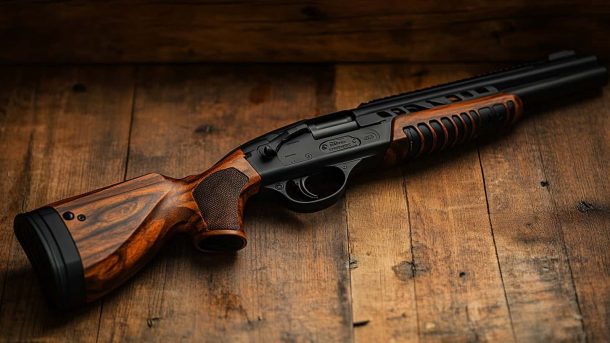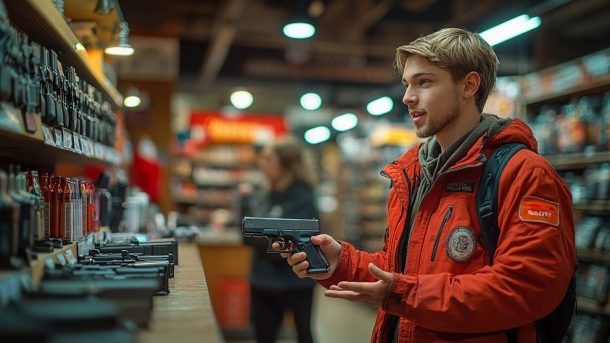When it comes to home defense, a shotgun remains one of the most reliable firearms available. Its stopping power, ease of use, and intimidation factor make it a preferred choice for many homeowners. However, selecting the right shotgun for self-defense can be overwhelming, especially for beginners. This guide will help you navigate the essential factors to consider, from gauge selection to ergonomics, ensuring you make an informed decision.
Why Choose a Shotgun for Home Defense?
Before diving into specific models and features, it’s important to understand why a shotgun is often recommended for self-defense:
- Stopping Power: A shotgun fires multiple projectiles at once, increasing the likelihood of stopping an intruder quickly.
- Ease of Use: Unlike handguns, shotguns provide a more stable firing platform, reducing recoil shock when used correctly.
- Intimidation Factor: The mere sound of racking a shotgun can serve as a strong deterrent to potential threats.
- Reduced Overpenetration: Compared to rifles, shotgun shells (like buckshot) reduce the risk of bullets passing through walls and harming unintended targets.
Key Factors to Consider When Choosing a Self-Defense Shotgun
1. Gauge Selection: 12-Gauge vs. 20-Gauge
One of the most critical decisions is the gauge (bore diameter). The two most common options are:
- 12-Gauge: The most popular choice for self-defense. Offers high stopping power but has more recoil, which may be difficult for beginners.
- 20-Gauge: A great alternative for those who want less recoil while maintaining enough stopping power.
If you are new to firearms, a 20-gauge shotgun may be more manageable without sacrificing effectiveness.
2. Pump-Action vs. Semi-Automatic
- Pump-Action: Requires manually cycling the action between shots. This type is highly reliable and often more affordable.
- Semi-Automatic: Fires a new shell with each trigger pull, reducing the need for manual operation. Easier to shoot quickly but requires more maintenance and can be pricier.
For beginners, a pump-action shotgun like the Mossberg 500 or Remington 870 is a solid choice due to its simplicity and durability.
3. Barrel Length: Shorter is Better for Home Defense
Shotguns come in various barrel lengths, but for home defense, shorter is better:
- 18-20 inches: Ideal for maneuverability inside tight spaces like hallways and rooms.
- 26+ inches: More suited for hunting or sport shooting, not practical for home defense.
4. Stock Type: Traditional vs. Pistol Grip
- Traditional Stock: Offers better control and absorbs recoil efficiently.
- Pistol Grip: More compact and maneuverable but harder to control for new shooters.
A traditional stock is generally the best option for beginners due to its stability and ease of use.
5. Ammunition Choice: Buckshot vs. Birdshot vs. Slugs
- Buckshot (#00 or #1): The preferred choice for self-defense. Delivers multiple projectiles per shot, maximizing stopping power.
- Birdshot: Lighter pellets, less lethal at a distance but still effective at close range.
- Slugs: A single large projectile, offering long-range accuracy but with a higher risk of overpenetration.
For home defense, 00 buckshot is the most widely recommended option.
6. Capacity and Reloading
Most defensive shotguns hold between 4 to 8 rounds. Some models allow for magazine extensions, increasing capacity. A higher-capacity shotgun minimizes the need for frequent reloading in a high-stress situation.
Best Shotguns for Home Defense
Here are some of the top-rated self-defense shotguns for beginners:
1. Mossberg 500/590
- 12-gauge or 20-gauge options
- Pump-action, highly reliable
- Ambidextrous safety, easy to operate
2. Remington 870
- A classic pump-action shotgun
- Durable and widely available
- Smooth cycling and ergonomic design
3. Beretta 1301 Tactical
- Semi-automatic for faster shooting
- Lightweight yet powerful
- Ideal for those willing to invest in premium performance
4. Benelli M4
- Used by military and law enforcement
- Semi-automatic, gas-operated
- Higher cost but exceptional reliability
5. Kel-Tec KSG
- Bullpup design for compact handling
- Dual tube magazines, holds more rounds
- Unique design suited for tactical use
Essential Accessories for a Home Defense Shotgun
Once you’ve chosen your shotgun, consider these must-have accessories:
- Weapon Light: A flashlight attachment allows for target identification in low-light conditions.
- Side Saddle or Shell Carrier: Enables quick reloading by keeping extra shells within reach.
- Sling: Helps with weapon retention and carrying.
- Upgraded Sights: Ghost ring sights or red dot optics improve target acquisition.
Safe Storage and Legal Considerations
Owning a firearm for self-defense comes with responsibilities:
- Secure Storage: Store your shotgun in a gun safe or with a trigger lock to prevent unauthorized access.
- Training and Practice: Regular practice at a shooting range ensures familiarity with your weapon.
- Legal Compliance: Check your local laws regarding firearm ownership, storage, and self-defense regulations.
Final Thoughts
Choosing the right shotgun for home defense involves balancing power, ease of use, and personal comfort. For beginners, a pump-action 12-gauge or 20-gauge shotgun with an 18-20 inch barrel and a traditional stock is a practical and reliable choice. Pair it with proper ammunition, essential accessories, and regular training to ensure you’re well-prepared for any situation.
By following this guide, you can confidently select a shotgun that suits your needs, providing both safety and peace of mind.



